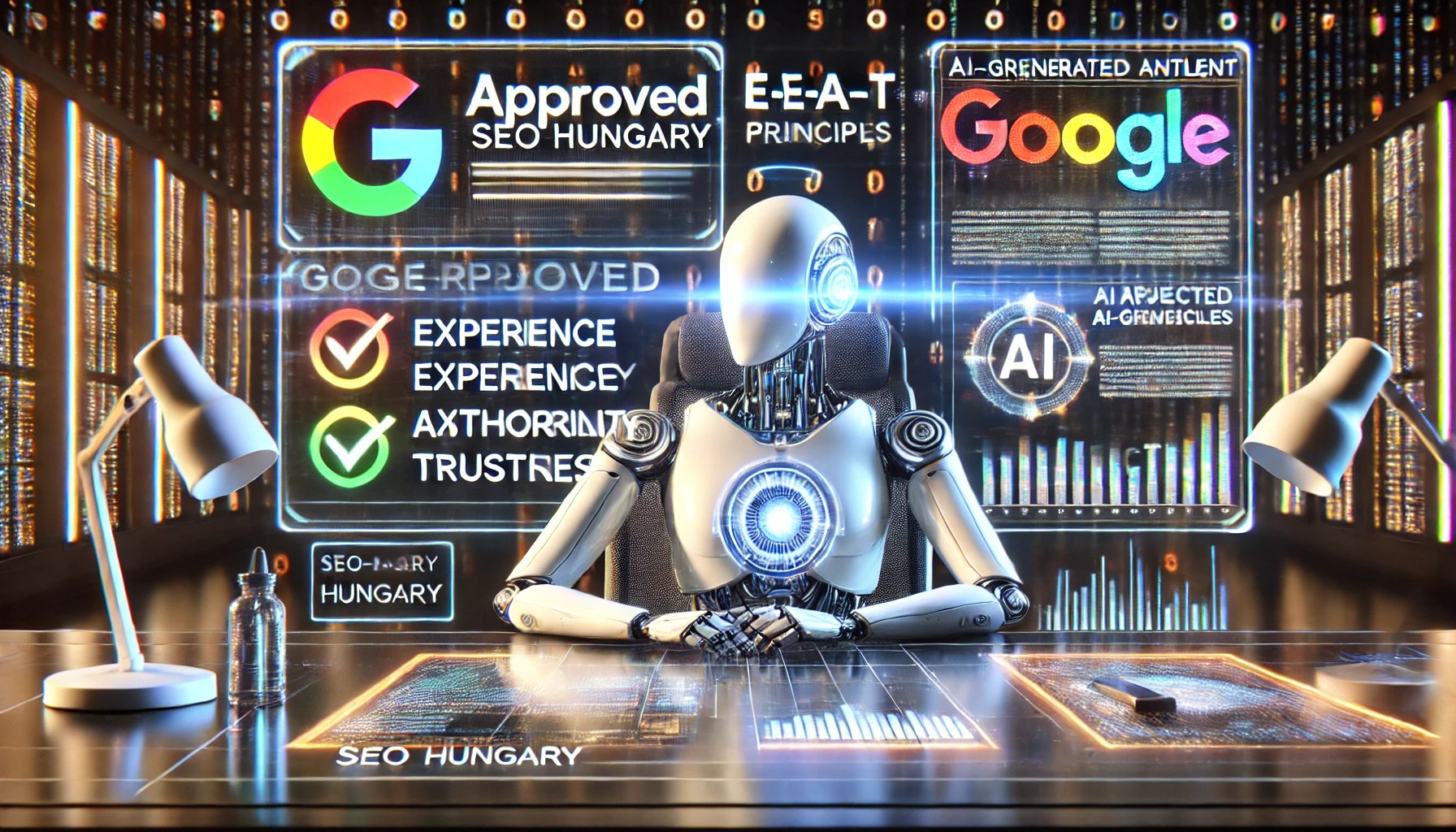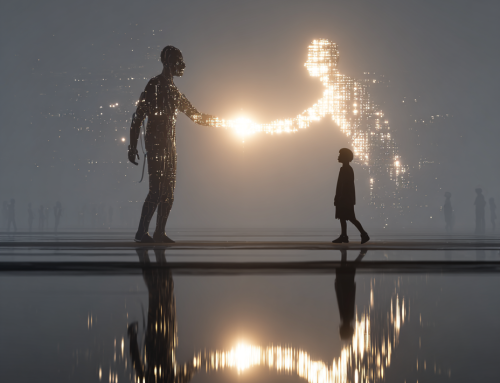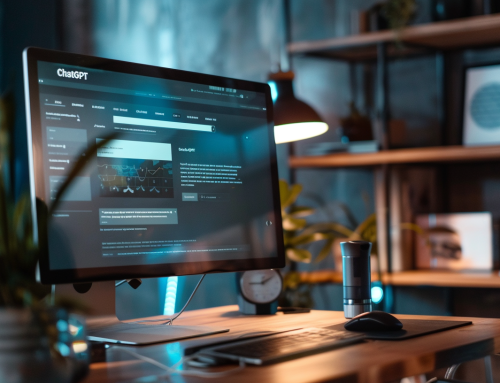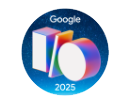
Artificial intelligence (AI) has completely transformed digital content production in recent years. Tools like ChatGPT, Claude, Gemini or Copilot, have enabled the rapid and automated creation of texts. While content production used to require a lot of time and resources, today an entire blog article or marketing material can be produced with just a few clicks – but does this work in the long run? strategy?
The question became particularly important in Google continuous algorithm updates due to the aim of promoting higher quality content for human readers. The The rise of AI-based texts has divided the profession into two camps: some believe that AI is a revolutionary tool that increases efficiency and helps with search engine optimization (SEO), while others claim that Google is increasingly strict in filtering and penalizing artificially generated texts.
But what is the truth? Does AI content really still work? SEO from your perspective, or is Google already taking action against it? In this article, we examine the current state of AI-generated content, the attitude of search engines, and what strategies might still work in 2025.
Growth of AI content in numbers
AI-based content production not only in the toolbox of SEO specialists and marketing experts appeared, but also became an increasingly large business globally:
- By 2024, the value of the AI-based content generation market exceeded $13 billion, and it is estimated that this amount could reach $35 billion by 2028.
- The 82% for digital marketers stated that he has already used AI content in some form in his work.
- The Google in search results 80% of the websites listed uses AI-generated or AI-assisted content to some extent (Source: HubSpot, Semrush).
This means that AI is no longer just an option, but almost a necessity. basic tool in content creation. The real question, however, is how to use it wellso that it doesn't lead to a Google penalty or search decline.
Google and other search engines' stance on AI content
Google does not officially ban AI-generated content. John Mueller, a senior Google search spokesperson confirmed in 2023 that AI content itself does not violate Google's policies, but low-quality, useless, or spammy text does.
THE Google Helpful Content Update (HCU) However, the latest version warns that the search engine primarily valuable, unique and for a human audience Algorithms are becoming increasingly adept at identifying AI-generated texts that they do not provide added value, or which created solely to manipulate search engines.
Key Google guidelines for AI content:
✅ Use AI as a tool, not as an exclusive resource!
✅ Add human editing and expertise to AI-generated texts!
✅ Avoid overly generic, keyword-overoptimized AI content!
✅ Emphasize your unique perspective, your own experiences and expertise!
Based on these, therefore AI content is not prohibited, but if you use it incorrectly, it can easily rank your site lower in search engines..
What could 2025 bring in the relationship between AI and SEO?
The future of AI-powered copywriting is exciting and challenging. As Google becomes more sophisticated, the following trends are expected to play a decisive role:
? Combination of AI + human editing: Content that will be successful will be one in which AI-generated drafts are edited and made more valuable by humans.
? AI-generated multimedia: Search engines may favor the inclusion of images, videos, and interactive content.
? Increased role of EEAT (Experience, Expertise, Authoritativeness, Trustworthiness): In addition to AI-based content, human expertise and experience will be an even more important ranking criterion.
? Automatic AI detection and filtering: More and more SEO tools and algorithms will recognize purely AI-based texts, so worthless content has a greater chance of disappearing from search engines.
AI-based content production still works from an SEO perspective, but only if you use it properlyGoogle doesn't ban AI, but if you use it purely for mass production and search engine optimization manipulation, you can expect serious penalties.
If When creating AI content, make sure it is valuable, unique, and relevant to your human audience.The best strategy in 2025 will be to You use AI as an aid, but human editing and expertise remain at the center.
This article will help you understand how you can effectively use AI-generated content while you avoid search engine penalties.
Current state of AI and content creation
AI-based content creation has made incredible progress in recent years. While a few years ago, automatic text creation was limited and often worthless, today we have advanced models like ChatGPT (OpenAI), Gemini (Google), Claude (Anthropic), and Copilot (Microsoft), which are capable of creating complex, natural language and SEO-optimized content.
But are these tools really capable of completely replacing human content production? Or rather as an effective aid should we look at them?
The evolution of artificial intelligence: the latest AI models and their capabilities
Current AI tools are not only capable of simple text generation, but can also help develop complex content strategies.
- ChatGPT 4 Turbo (OpenAI) – Larger database, more sophisticated language, faster response time. Excellent for content writing, blog article drafting, and SEO-optimized materials.
- Gemini 1.5 (Google) – Built on Google search data to better understand ranking factors and search intent. Ideal for SEO research and content that is compatible with Google algorithms.
- Claude 3 (Anthropic) – It places a strong emphasis on understanding context and creating more natural text, so it can be useful for generating longer blog articles and opinion pieces.
- Copilot (Microsoft) – Mainly used for business and B2B content, integrated into Microsoft products (Word, Excel, Edge).
THE Artificial Intelligence its development led to It is becoming increasingly difficult to distinguish texts written by AI from those written by humans., especially if they are properly edited and optimized.
Benefits of AI-based content generation
THE Artificial Intelligence its penetration in content marketing no coincidence. AI-powered copywriting saves time and resources, and helps you create a scalable content strategy.
? Speed – A blog article that used to take hours to write can now be completed in minutes.
? Cost effectiveness – Compared to the costs of a professional copywriter, AI is a significantly cheaper solution, especially for large amounts of content.
? Scalability – Content creation can be easily scaled with AI, generating dozens of articles on different topics per day.
? SEO optimization – AI can help with proper keyword placement, understanding search intent, and generating meta descriptions and headlines.
? Content research and analysis – AI analyzes hundreds of sources in seconds, allowing for more informed and relevant content.
? Example: An SEO agency switched to AI-based content creation and Increased blog production by 40%while the writing costs Reduced by 30%The AI-generated content was fine-tuned by human editors so that it remained useful according to Google's algorithms.
Using AI tools as part of your SEO strategy
AI not only helps with content generation, but also also in optimizing the entire SEO strategy. Modern SEO professionals not only for writing, but also for research, analysis and competitor monitoring use these tools.
? Keyword research – AI models can identify low competition but high search volume keywordsthat are worth incorporating into the content.
? Developing a content strategy – AI can help determine what topics are performing well in a given industry.
? Sketching – AI-based outlines can be generated for blog posts, articles, and long-form content.
? On-page SEO optimization – Helps you properly structure meta descriptions, headlines, and alt tags.
? Content analysis – It shows you what content is ranking well and why.
? Example: One company implemented an AI-powered SEO strategy, where AI generated article outlines and optimized keywords. The result? 50% organic traffic growth in 6 months.
The challenges and the future
Although AI is extremely useful from an SEO perspective, not a panaceaThere are challenges to consider:
⚠ Quality problem – AI sometimes generates inaccurate or mediocre content that requires human editing.
⚠ Google's policies – Google does not penalize AI content, but poor quality, mass-generated content is.
⚠ Excessive automation – Content production based solely on AI can be dangerous in the long run if it is not combined with human intervention.
The best strategy In 2025, a combination of AI and human expertiseAI makes content creation faster and more efficient, but human creativity and editing are essential to success.
AI-based content creation created unprecedented opportunities for SEO and digital marketing in his worldHowever, as Google's algorithms evolved, it became clear that AI only works effectively if it produces valuable content tailored to a human audience.
If you use AI well, then you can work faster and more efficiently, but if you rely solely on automation, Google will quickly rank your website lower.In the next section, we will examine whether what AI content works well from an SEO perspective and which ones are already being penalized by Google.
Google's stance on AI content
The rise of AI-based content generation has posed a serious challenge to search engines, especially Google. In recent years, Google has repeatedly made it clearthat the problem is not the use of AI itself, but the spread of low-quality, automated and worthless content.
The search giant is constantly improving its algorithms to quality, unique and useful content But where will Google stand in this area in 2025? Will it penalize AI content, or on the contrary, can a well-implemented AI strategy be an advantage from an SEO perspective?
Google Search Guidelines: AI and Quality Content
According to Google's official statement, AI content is not prohibited, but the same guidelines apply to them as to human-written texts.
THE Official Google Search documents based on the following to consider when creating AI-based content:
? You need useful, valuable content – AI-generated text it should be meaningful, useful and informative, not just a set of keywords thrown together by an algorithm.
? Don't manipulate the search algorithm! – If the sole purpose of AI content is to manipulate search rankings and not serve readers, then Google with manual or algorithmic penalty can hit the page.
? AI = tool, not substitute – Google encourages website owners to use AI used as a helping tool, rather than as a single source of content.
? Sources and credibility – For AI content extremely importantto have credible sources, because AI may be prone to providing false or fabricated information (hallucination).
EEAT and the role of AI content
The EEAT (Experience, Expertise, Authoritativeness, Trustworthiness) concept has become one of Google's most important ranking factors. The acronym stands for:
- Thisxperience – Does the author have personal experience with the topic?
- Thisxpertise (Expertise) – Does the information come from a reliable source? Is the author knowledgeable?
- THEAuthoritativeness – Is the site or author recognized in the field?
- TReliability – Is the information accurate and verifiable?
? Relationship between AI and EEAT: AI in itself not has experience or with expertise, so the content it generates rarely fully complies with EEAT requirementsBecause of this human editing and validation is essential.
How to optimize AI content according to EEAT requirements?
✅ Add a human author! – Use expert contributions, edits, and make it clear that the content has been reviewed by a professional.
✅ Cite sources – AI-generated content authentic references must contain.
✅ Incorporating unique opinions and experiences – Instead of AI real case studies, statistics and examples also apply.
Possibility of manual and algorithmic penalties
Google can penalize AI-based content in two ways:
1️⃣ Manual penalty – A member of Google's webspam team detects AI-generated, useless, or manipulated content and may manually lower the page's ranking or even ban it from search results.
2️⃣ Algorithmic penalty – Google’s search algorithms (especially the Helpful Content Update) automatically detect low-quality or overly automated content, and the affected websites are ranked lower.
? Example: More websites in 2023 experienced a significant decline in organic traffic, after they shifted to excessive AI-based content production and did not pay attention to quality. These sites average 40-60% decrease in attendance suffered after Google updates.
The impact of Google's Helpful Content Update on AI-generated texts
THE Google Helpful Content Update (HCU) an update specifically designed to filter out low-value content. What does this mean for AI-generated texts?
? Penalized AI content:
❌ Poor quality texts, over-optimized with keywords
❌ Content that does not provide real value to the reader
❌ Automatically generated articles that are published without human editing
✅ AI content that works:
✔ AI-assisted, edited and optimized texts
✔ Authentic, well-structured, source-supported content
✔ Articles with human authors and based on experience
? Example: An e-commerce site used AI to generate product descriptions, then used human editing to make them unique and informative. The result? 25% higher conversion rate and better Google ranking.
The Google does not prohibit the AI content, but strictly controls their quality and usefulness. Pages that only for mass-produced AI texts rely on, they may be at a serious disadvantage in search results.
If you use AI properly – with editing, incorporating human experience and authentic sources – then AI-generated content They also remain competitive from an SEO perspective..
When can AI content work well from an SEO perspective?
AI-generated content they are not necessarily problematic, and even with proper use they can also be an advantage in SEO strategy. The question is not whether AI content works, but whether how to apply it correctly in order to benefit the search engine optimization point of view.
The key is quality and human control. The AI cannot completely replace human creativity, expertise and experience, but it can help make content creation faster, more efficient, and more targeted.
1. AI content combined with human review (AI + human editing)
The best SEO results not purely AI-generated texts achieve, but those that They are born from a combination of AI and human editingAI is great for outlining, keyword research, and text generation, but the final content fine-tuning and validation requires human labor.
? An example of an effective workflow:
✅ Step 1: The AI creates a content outline and writes the first text version.
✅ Step 2: An SEO expert or copywriter reviews and edits the text.
✅ Step 3: Added unique examples, case studies, and personal experiences.
✅ Step 4: Final editing, style correction and SEO optimization.
? Why is human intervention important?
- AI may be prone to Misunderstand the context or provide incorrect information ("hallucination").
- Human editing guarantees the a more natural tone and a better reading experience.
- The AI texts templated they can be – human editing makes them more unique and informative.
? Result: Google ranks content that has been reviewed by humans with greater confidence, as it is more relevant to the EEAT (Experience, Expertise, Authoritativeness, Trustworthiness) expectations.
2. Create unique, valuable content using AI (not just mass production)
One of the biggest dangers of AI is that many companies start mass producing similar, boring and generic contentthat provide no real value.
? One of Google's principles: “Serve people, not algorithms!”
AI do not use it to mass produce similar textsbut to help creating interesting, unique and in-depth content.
? What kind of AI content performs well?
✔ Processing data-based analyses, case studies and research results.
✔ Revising and expanding interviews, opinion pieces, and expert materials.
✔ Developing topics that are difficult or time-consuming to write by hand, such as analyzing market trends.
❌ What is NOT working?
- Generic and worthless texts mass-generated by AI.
- Reproducing other AI-generated content without adding any real value.
- AI-based copying and publishing of news and current information that has no credible source.
? Unique content = better SEO + higher user engagement
Google is constantly monitoring how pages Do they provide truly useful content?, or just copy and republish other AI content. The latter is Helpful Content Update He has already punished him several times.
3. Authentic texts supported by sources
One of the biggest problems with AI is that does not always provide accurate informationbecause it does not search for information directly from the internet, but works from a pre-trained data set.
? Solution: Always check and support with sources AI-generated content!
✅ How can you make AI content more credible?
✔ Reference to credible sources (e.g. research, statistics, industry reports).
✔ Incorporating the opinions of real experts (e.g. interviews, quotes).
✔ Manually verify AI-generated claims.
? Example: A financial blog AI-generated investment tips, but no sources providedThe result? Google ranked it lower in the results. After the author included advice and links from real financial experts in the text, and the page received 301% more organic traffic.
4. AI to support content, not completely replace it
One of Google's core principles is that AI is useful, but it cannot completely replace human content creation.
? How can you use AI to support your SEO strategy?
✔ For keyword research and competitive analysis.
✔ To generate sketches and content ideas.
✔ For quick optimization of meta titles and descriptions.
✔ To edit and rephrase content.
? Example: An e-commerce site used AI for generating product descriptions, but each description was reviewed and fine-tuned by an editor. The result? Growing organic traffic and conversion rate.
AI content It still works in 2025 from an SEO perspective, but only if you use it correctly.
✅ Use AI as an aid, not as an exclusive source of content!
✅ Always check and edit texts written by AI!
✅ Strive for unique, valuable and authentic content!
✅ Add sources and expertise to your texts!
When can AI-based content be dangerous?
AI-based content generation is not only an opportunity, but also a risk if you don't use it properly. Google and other search engines are being identified and punished in increasingly sophisticated ways AI-generated content that relies on manipulation, mass publishing or misinformation.
But when and how can AI become a From SEO weapon to SEO own goal? Let's look at the biggest dangers!
1. Overly generic, superficial content (“filler” articles)
One of the biggest disadvantages of AI is that tends to produce mediocre, boring and meaningless contentif not properly managed.
? Why is this a problem?
- Readers quickly lose interest.
- Google doesn't like low-value content. THE Helpful Content Update its purpose is precisely to rank them.
- The high bounce rate (bounce rate) and low time spent on page negatively affect the SEO of the page.
? Example: A website published 10 AI-generated articles a day on general topics. Traffic increased in the first month, but later Google reduced the page's search rankingbecause the content did not bring real value to readers.
? Solution:
✅ Use AI for sketching and ideation, but always supplement it with your own expertise and unique information!
✅ Concentrate for quality, detailed and unique content, which is really useful for the reader.
✅ Post your own experiences, case studies and real examplesto make the AI-generated text more unique.
2. Mass copying and publishing other AI-generated content
AI tools are becoming increasingly popular, and many people are using the same models. This results in the same content can appear on many websites, which for duplication problems can lead.
? Why is it dangerous?
- Google detects copied content and reorders the copies.
- Plagiarism issues may arise if an AI text is too similar to content on other websites.
- Lack of unique content reduces the authority of the page and its SEO value.
? Example: An online store used AI to generate product descriptions, but did not edit them, and found the same description on a competitor's site. As a result Google ranked the page down due to duplicate content.
? Solution:
✅ Always with AI content run a custom content check (e.g. Copyscape or Grammarly).
✅ Instead of AI, use your own examples, case studies, and unique data use it.
✅ AI for sketching and inspiration use it, not as final content!
3. Unnatural texts over-optimized with keywords
One of the biggest pitfalls of search engine optimization is aggressive keyword stuffing, which the AI sometimes applies automatically.
? Why is it problematic?
- Google recognizes unnatural text and punishes them.
- Text that is difficult for readers to digest arises.
- The credibility of the site is deterioratingbecause the content is not organic.
? Example: A blog used AI to generate articles for the keyword “cheap laptop,” and the text looked like this:
❌ “If you are looking for a cheap laptop, this cheap laptop is one of the best cheap laptops on the market. The cheap laptop is a great choice for anyone who wants a cheap laptop.”
Result: The Google imposed a penalty to the page, and it lost its previously acquired rankings.
? Solution:
✅ Don't force keywords, but incorporate them naturally!
✅ Use LSI (Latent Semantic Indexing) keywords, i.e., related terms (e.g., "affordable laptop", "affordable notebook").
✅ The reader experience should be the primary consideration!
4. AI fakes and the problem of disinformation
One of the biggest dangers of AI is that sometimes provides incorrect or completely fabricated informationThis phenomenon “AI hallucination” It is called spam and can cause serious damage to a website's credibility.
? Why is it dangerous?
- Google may penalize misleading or inaccurate content.
- Loss of credibility may lead to a decrease in visitor trust.
- Disinformation can also raise legal issues (e.g. on health or financial topics).
? Example: A health blog used AI to generate an article on the topic of “best vitamins.” The article contained false or misleading claims that were not supported by scientific sources. The result: The site's credibility has declined and traffic has dropped significantly.
? Solution:
✅ Verify all AI-generated content with credible sources!
✅ In healthcare, financial, and legal topics, always have a human expert edit the text written by AI.
✅ Don't blindly trust AI claims - always look for real sources!
AI content can still work for SEO in 2025, but if you use it wrong, carries serious risks.
? When AI can be dangerous:
❌ If you produce generic, boring, worthless content.
❌ If you mass copy AI-generated texts from other sites.
❌ If you write overly optimized, unnatural texts.
❌ If you publish AI-based disinformation that could be harmful.
✅ The best strategy is a combination of AI and human editing!
Future Trends and the Future of SEO with AI Content
AI-based content generation is not just a passing trend – this is digital marketing and one of the cornerstones of the future of SEOAI is becoming more advanced, and Google is constantly fine-tuning its algorithms to favor content that creates real value.
But where is search engine optimization headed in 2025 in terms of AI content? What will be the next big changes to watch out for?
1. AI-Assisted Content Strategy: The Role of AI in Research and Drafting
AI is increasingly in preparing the content creation process and plays a role in optimizing, not in the generation of final texts.
? How does AI help content strategy?
✅ Keyword research and competitive analysis – AI can quickly analyze the market, identify search trends, and discover keywords with low competition but high search volume.
✅ Content strategy planning – AI-based tools (e.g. Clearscope, SurferSEO) can help determine what content performs well in a given industry.
✅ Sketches and structural recommendations – AI can help you effectively plan the structure of articles so that they are logical and SEO-friendly.
? Example: A digital marketing agency used AI to for competitor content analysis and identify the best performing keywords. The result? 30% faster content creation and 20% traffic increase.
? The essence of the trend: AI is the research and in the field of sketching It will be an excellent tool, but the final text will still need to be edited by humans.
2. Generative AI and multimedia SEO (videos, images, interactive content)
AI not only generates texts, but also takes on a greater role in creating visual and interactive content.
? What AI-based multimedia content will become dominant?
✔ Automatically generated images and illustrations (e.g. DALL·E, Midjourney, Adobe Firefly)
✔ AI-powered video editing and narration (e.g. Synthesia, Runway ML)
✔ Interactive content and visualizations (e.g. AI-powered infographics and animations)
? Example: A travel blog powered by AI videos started using tags that summarize the content of articles. Time spent on the page Increased by 40%, and the bounce rate has decreased significantly.
? The essence of the trend: Search engine optimization is increasingly moving towards multimedia, so AI-powered images, videos, and interactive elements are taking a bigger role in SEO strategies.
3. Semantic search and entity-based content optimization
Google is looking less and less at keywords and more and more at search intent and context takes into account.
? What does this mean for AI-generated content?
- It's not enough for an AI article to include keywords – the content must also be relevant to search intent.
- AI-generated texts should better reflect user needs and context.
? Example: An SEO expert tested whether a a keyword-driven article or an AI-powered article based on search intent performs better. THE Content that matched search intent yielded 3x better results in organic traffic.
? The essence of the trend: In the future, AI-generated content they need to become more complex and context-sensitive, otherwise Google will rank them lower.
4. Ethics of AI content and credibility challenges
As AI plays an increasingly important role in content creation, ethical issues also arise:
? Main problems:
⚠ Fake information and deepfake content – AI often creates convincing but untrue content.
⚠ Plagiarism and copyright issues – The originality of AI-generated texts and images may be questionable.
⚠ SEO manipulation and automated spam – AI tools are increasingly being used for manipulative SEO strategies, which Google is already penalizing.
? Example: In 2024, Google will index 3.5 million websites removed from search results because they operated as an AI-based content farm.
? Solution:
✅ Verifying AI-generated content with human verification.
✅ Incorporating sources and expert opinions into AI-generated content.
✅ Ethical use of AI in SEO and content marketing purposes, not for manipulation.
? The essence of the trend: Verifying and ensuring the authenticity of AI content will become increasingly important.
? Where is the future of AI and SEO headed?
✅ AI assists, but does not replace, content production.
✅ Multimedia SEO will become increasingly important (images, videos, interactive content).
✅ Google focuses on semantic search and entities, not just keywords.
✅ The ethics of AI content will be a key issue, especially around authenticity and plagiarism.
In the coming years, those who will be successful AI is used as a tool, not a complete replacement.
One more thing…
AI-generated content does not disappear, and is even playing an increasingly important role in content marketing and SEO. However, based on past trends and Google’s algorithm updates, it is clear that AI alone is not enough for success.
Websites that rely solely on AI and they publish content without quality control, are taking on more and more risks. Google's goal remains to create useful, original and valuable content for human readers Therefore, AI content it can still work, but only if applied correctly.
AI-generated content: it works if you use it well
? Why use AI?
- Speeds up content production – AI can help with drafting, keyword research, and writing the first drafts of text.
- Supports SEO optimization – AI can perform analyses, recognize trends and optimize texts.
- Increases efficiency – Saves time and money, especially for large amounts of content.
? Example: A tech blog used AI to quickly create drafts, then added editorial review and expert input. The result? 30% for faster content creation and higher search rankings.
? Key point: AI is a tool, not a panacea!
Human editing and quality control are key
AI-based content they are not perfectThey are often generic, sometimes inaccurate, and don't always meet the needs of readers.
? Why do we need human editing?
✅ Makes content more authentic – AI may be prone to reporting inaccurate or fabricated information that needs to be verified.
✅ Makes the text unique and valuable – An editor can add personal experiences, examples, research, and real data.
✅ Makes the text style more natural – Texts written by AI are sometimes monotonous or too “robotic”, which can reduce the reader experience.
? Example: An online store used AI to generate product descriptions, but each description was reviewed and fine-tuned by human editors. The result? 40% increases conversion rate and improves search rankings.
? Key point: AI does not replace human creativity, it complements it!
Google's algorithm evolution: what to expect?
Google is constantly develops its algorithmsto recognize and downgrade low-quality, AI-based content. Updates in recent years (e.g. Helpful Content Update, SpamBrain) clearly show that search engines rank worthless, generic AI content lower.
? What does Google penalize?
❌ Overly generic, AI-based texts (e.g. worthless, “stuffing texts”).
❌ Copying other AI-generated content (duplicate content).
❌ SEO manipulation techniques (e.g. excessive keyword usage, automatically generated spam content).
? Example: An SEO-focused website started generating content with AI, without human review. Traffic increased in the first month, but two months later Google delisted the pagebecause the content did not provide real value to readers.
? Key: AI content needs to be constantly updated and optimized to prevent Google from ranking the page lower.
The best strategy: Use AI for content support, but not exclusively
? How to use AI in SEO?
✔ For content research and drafting
✔ For keyword research and competitive analysis
✔ For SEO optimization of content
✔ For generating multimedia content (images, videos)
? Why not use AI exclusively?
❌ Don't publish AI-generated content without human editing!
❌ Don't rely on AI without checking with credible sources!
❌ Don't try to use AI for SEO manipulation!
? Example: An online magazine used AI to create drafts, then a team of editors revised and added to the articles. The result? Traffic increased by 50%, Google positively evaluated the unique and useful content.
? Key point: Combining AI and human creativity is the most effective method for successful SEO!
Final thoughts
AI-based content creation Still working in 2025, but only if you use it strategically and consciously.
? The secret to successful AI content:
✅ AI + Human Editing = High Quality
✅ SEO-optimized but natural text
✅ Unique, valuable, source-supported content
? Google's goal remains to prioritize quality content that is useful to people. If you use AI wisely, can be an advantage in SEObut if you abuse it, may result in a penalty.
? Remember: The future is not about a battle of AI vs. human content, but about the collaboration of the two.







